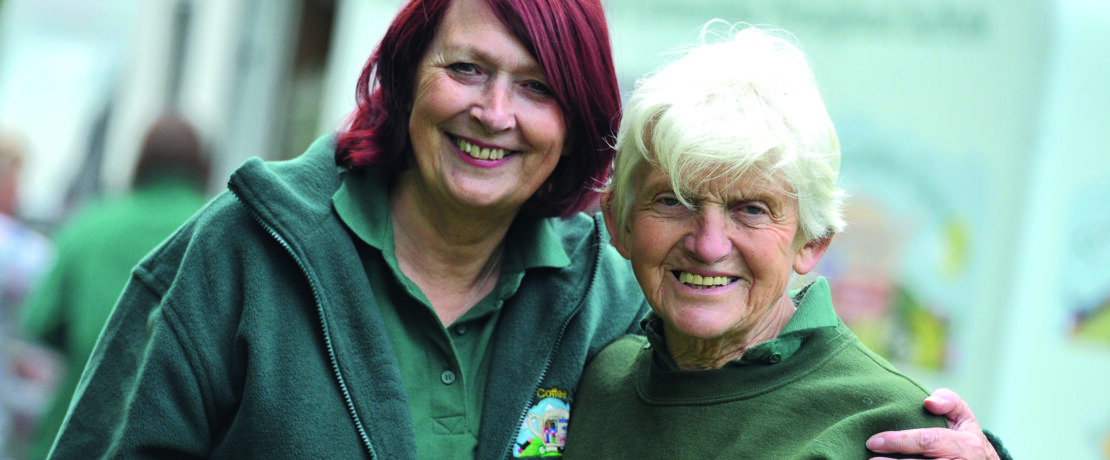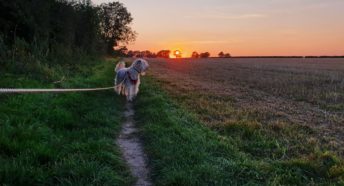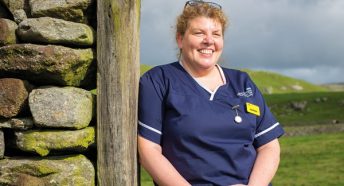Mind matters: boosting mental health in our countryside communities
Living and working in the countryside brings its own unique pressures. Jane Yettram explores three inspiring projects that are working to improve mental wellbeing within rural communities.
Overcoming isolation
When you talk to people from rural communities about the issues affecting their mental wellbeing, a huge range of topics come up. For the volunteers and staff of the Rural Coffee Caravan (RCC), a charity created in 2003 by Rev Canon Sally Fogden to address social isolation in Suffolk, poor public transport is surprisingly high on the list.
‘It’s the biggest problem for non-drivers in rural areas,’ says CEO Ann Osborn. ‘The freedom to decide what to do with your day just isn’t there. You can’t decide to go to the cinema, or to see a friend unless they live close by.’
It affects everyone, from older people who no longer drive to young families where the breadwinner takes the one car to work. ‘Their only option for getting to the nearest town is walking long distances or asking for lifts. Then they’re beholden to others, losing their independence.’
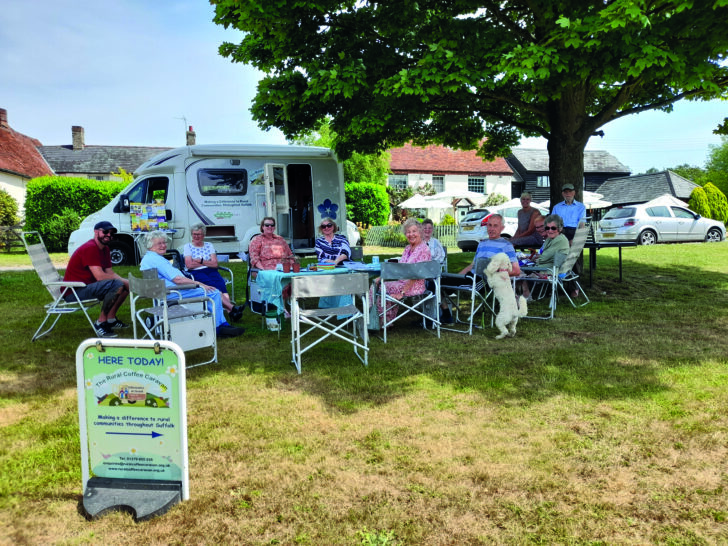
The transport issue is, of course, actually a social issue, with loneliness affecting mental wellbeing. ‘We feel passionate about the power of human connection,’ says Ann. That’s why, every month, RCC’s three camper vans head to remote corners of rural Suffolk with free tea, coffee and cake – plus information and a listening ear.
Each van is staffed by a community engagement officer, along with volunteers. ‘The van stays for two hours and people come and chat. Our trained staff and volunteers have good antennae, sensing whether someone’s struggling.’
Connecting people
There’s a display of information about local services, and RCC helps with practical things, too, such as filling in forms to get a Blue Badge for disabled drivers. Many people, though, simply value being with others. ‘We’re open to all and super-welcoming, learning people’s names so they feel remembered and valued.’
Thanks to RCC, the social circle of one lady in her eighties expanded from two people to 30. ‘She told me she’d never had such a busy life, and that knowing people made her feel safe,’ says Ann. ‘There are many such stories. Add them together, and the bigger picture is that we’ve connected people, strengthening the community.’
Poverty can, of course, exacerbate mental health problems. ‘We have huge pockets of poverty in Suffolk, which don’t show up in national figures, as the population as a whole may be small,’ says Ann. Over winter, RCC mapped more than 300 warm spaces across the county, which those struggling with energy costs could use. ‘We also launched a slow-cooker appeal,’ Ann adds. ‘A slow cooker uses roughly the same amount of electricity as a light bulb, and we donated over a thousand.’
Meet-up Mondays
However, as Ann stresses, ‘You don’t have to be poor to be lonely. Everybody wants company – and that’s what Meet-up Mondays are all about. These take place every week in a pub or café, and clock up around 45,000 visits a year. We don’t run the sessions but facilitate the network with a few simple rules – sessions must be every week, free and last at least an hour and a half.
‘Recently, a regular lady hadn’t turned up to a pub session. Someone went to her house to see if she was OK, but she’d fallen and broken her hip. They called the ambulance, staying until it arrived. She could have been on the floor until the following day. But being part of something meant she was missed.’
Helping young people
‘Everybody sees Sherborne as this chocolate-box country town. But, like anywhere, you’ll find kids needing support.’ So says Helen Da Silva Wood, who runs The Rendezvous, a charity for children and young people in Dorset and Somerset, which opened in 1997 as a drop-in centre.
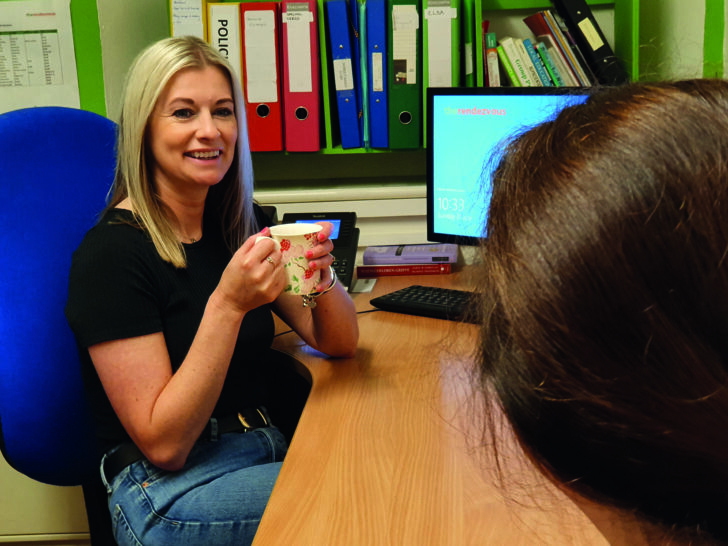
These days, young people face many issues, from online bullying to academic pressure. The pandemic has also had a huge impact on their confidence – and living in a rural area can make certain things harder. ‘Isolation, poor transport, low wages, lack of opportunities – we see all those problems,’ says Helen.
Tackling youth challenges
The result can be severe anxiety, she says: ‘Some come to us so traumatised by anxiety they can’t get over the doorstep. They just stand and cry. Many have dropped out of school and need one-to-one mental health support.’
This is exactly what The Rendezvous offers. ‘We use many counselling strategies, but we also give advice, and challenge young people in different ways. Jemma Turner, our lead on this, sets them tasks; for example, if someone finds it difficult to leave the house alone, she’ll ask them to get to the garden gate by themselves, then to the end of the road. She supports them to take baby steps, celebrating every achievement.’ Young people can get in touch via Facebook, phone or email, while schools and GPs also recommend the charity.
‘We’re based under Sherborne’s Cheap Street Church, so it’s very informal – not like a doctor’s surgery, so people don’t feel labelled.’
After the one-to-one sessions, more support is available. ‘At the Discovery Project, a small weekly group, young people begin to build friendships,’ says Helen. ‘One day, I heard laughter. They were playing cards. I realised that for these young people, laughter is often absent. It was tremendous to hear it.’
The Rendezvous also provides English and maths tuition. ‘Many young people have undiagnosed learning disabilities, so they struggle to engage at school, misbehave and get labelled difficult. We offer nationally accredited qualifications equivalent to a pass grade at GCSE.’
Changing lives
For Emily (name changed), now 16, The Rendezvous was a lifesaver. ‘Emily had been out of school from 11 because of anxiety, and came to us at 13,’ says Helen. ‘Her mother had to wait in the building, as Emily couldn’t cope if she left. Slowly, Emily relaxed and her mum was allowed to go away. She then joined the Discovery group, and got her English and maths qualifications.’
Emily says, ‘I was bullied at primary school, developed anxiety and was struggling every day. Secondary school was almost impossible. I’m now going to college and couldn’t be happier.’
Another programme helps young people into work. ‘We help them write CVs, do interview practice… With anxious young people, such programmes in distant towns don’t help,’ says Helen. ‘How would they get there?’
Sherborne has seen many such services for youngsters cut. ‘But young people desperately need these services – that’s why we’ve developed them.’
Supporting farmers
Field Nurse, a charity founded in 2016 to support farmers in Lancashire, was set up after a curious coincidence. Richard Schofield, now a trustee of the organisation, had seen first-hand the pressures that farmers face through his work as a mobile sheep dipper – whenever he turned up on a farm, they were desperate to talk to him.
Richard went to the Young Farmers’ Club to see if they would support him in starting a project. ‘I discovered that, 10 minutes earlier, someone else had walked into the same office with the same idea,’ he says.
That other person was Roger Dugdale – also a trustee of the resulting project, Field Nurse. Roger runs a company supplying animal feed, and his delivery drivers had been reporting alarming conversations with farmers that revealed the stress they were under.
‘It’s the nature of farming that affects mental health,’ says Heather Harrison, administrator at Field Nurse. ‘You’re in an isolated rural location, working long hours for little money, and you live and work in the same place, often alongside family. So, to give farmers someone neutral to talk to, our registered nurses visit four livestock auction marts in Lancashire.’
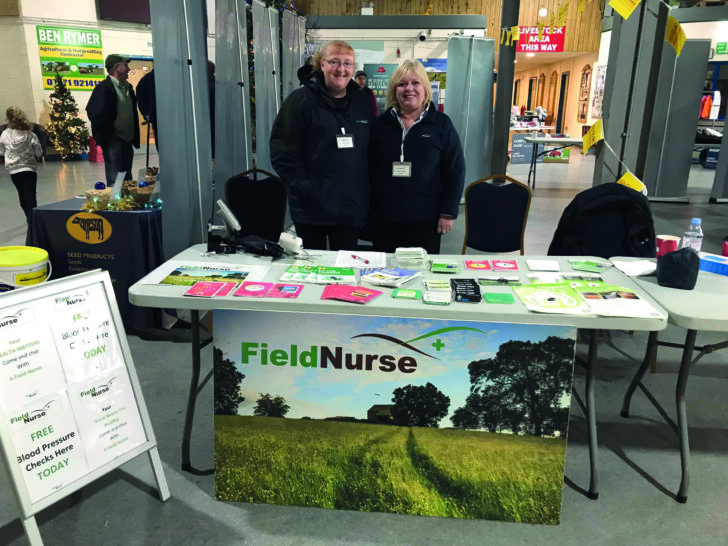
‘They offer physical checks, too,’ notes Richard. ‘But when someone sits down for a blood pressure check, an underlying issue often comes out. If we put up a sign saying, “come and talk to us about your mental health”, we wouldn’t have any takers.’
‘Sometimes, someone simply needs a friendly face,’ adds Heather. ‘For example, the nurses supported a farmer with a very ill family member – he found it helpful to talk to someone unrelated to the family.’
If nurses do discover a deeper problem, mental or physical, they signpost to the right service. ‘We fill in a referral form to take to the GP or hospital. We’ve even referred people to A&E,’ says Richard. ‘And for mental health there is RABI, the Royal Agricultural Benevolent Institution. This has an excellent helpline, the Farming Crisis Network’
The three Fs
Current economic pressures are only adding to farmers’ worries. ‘It’s the cost of the three Fs – feed, fertiliser and fuel,’ says Heather. ‘Cash flow takes a big hit when prices for regular items go up. Plus there’s a lot of financial uncertainty in farming, with subsidies going and market prices very volatile.’
As well as the auction marts, Field Nurse visits summer agricultural shows. ‘We get to talk to people we don’t see at auctions. We recently attended an NFU event in southwest Lancashire – that’s an arable area, so we reached farmers who don’t attend livestock markets.’
Field Nurse targets young people too, through talks for Young Farmers’ Clubs. ‘It instils at an early age the need to look after themselves, as well as their animals and their farm’ says Richard.
Often, helping with the cause of a problem takes away the anxiety. ‘We put a young family struggling with various things, including financial problems, in touch with RABI, who helped them resolve their issues,’ says Richard. ‘Later, the family returned to thank our nurse. It’s through such signposting that we help farmers and others in rural communities find the support they really need.’
About the author
Jane Yettram is a freelance writer and editor based in west London. With an ever-expanding portfolio, she writes about everything, from football to photography, gardens to health, education and older people’s issues.
A version of this article was originally published in CPRE’s award-winning magazine, Countryside Voices. You’ll receive this as well as access to other benefits including discounts on attraction visits and countryside kit from major high street stores when you join as a CPRE member. Join us now.
